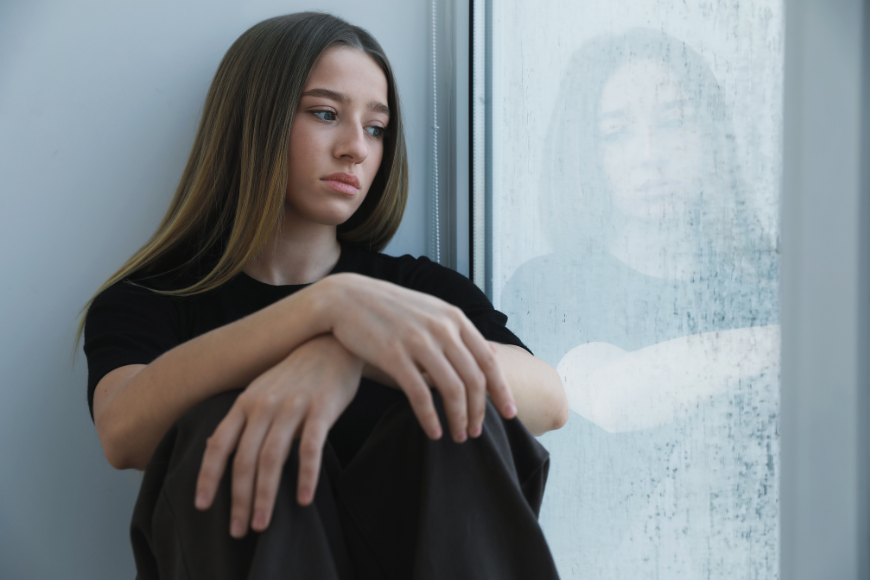"It's like I've Been Sitting in a Dark Closet With the Light Shut Off."
“It’s like I have been sitting in a dark closet with the light shut off. I keep searching to find the light, but I just can’t. So I just gave up looking for it and got used to sitting in the dark. Sometimes I can see the light from the outside poke through under the door though, and that lets me see again for a little bit.”
These are the words that one of my teenage clients used to describe her depression. I was blown away. So insightful and articulate. I thought about her metaphor for weeks after that session. People in her life had no idea that she was feeling this way. I had no idea she was feeling this way. Shame on me. I knew she was sad, but I didn’t know she had been this sad for so long and had accepted it.
This was her way of telling us that she has become accustomed to her sadness. She just thought this was the way she was going to be stuck living. She adapted to the darkness in her life. She couldn’t see much, but she was living, functioning and doing what she needed to do. Her sadness was disguised to the outside world, but inside she was getting used to this feeling as being “normal.” She tried her best to cope with it. She was so relieved when I told her that she didn’t have to live in that closet anymore.
From working with teens and children for the past 10 years, I’ve learned that they are very resilient. They learn to cope and adapt to their environment a lot easier than adults do. Often teens don’t know that depression is something that can be managed. They rationalize and push through their days having no idea that there are ways they can start to feel better with the right kind of support. They kind of just accept it, because they don’t know any better. Teenagers need someone in their life to acknowledge their pain and validate their sadness, which makes them feel a little more “normal” and gives them hope for change.
In my experience, teens often tell a close friend about their sadness before they clue mom and dad in. It is usually through a text or post on social media that alerts their crew that something isn’t right. They may flat out say it to their bestie, or allude to it on a post. Some teens are afraid to tell their parents about their sadness because they feel as though they are a burden to them because of it or fear it would make their parents feel guilty about it. They also feel as though something must be wrong with them, so they feel ashamed to talk about it.
Teen depression is best treated through a combination of psychotherapy and medication management under the care of a psychiatrist. Here are some signs that your teen may be feeling depressed:
Irritability and aggression. Anger is a secondary emotion and depression often disguises itself behind anger. It feels better to rage out than sit and cry. It feels better to tell everyone that you hate them instead of telling them how hurt you are.
Increase or decrease in appetite. Food can bring comfort and some teens begin to develop a pattern of seeking food as a way to cope. On the other hand, some teens may start to feel anxious and loose their appetite.
Lack of motivation. They no longer want to get their school work done, go to soccer practice or see their friends like they used to. Teens can easily change interests and have social conflicts, but when the lack of motivation is pervasive on all levels, you want to consider if there is an underlying issue to be explored.
Increase or decrease in sleep. Many teens can sleep late into the day, but if most weekends are spent under the covers, you want to ask about what else is going on with them.
Unable to focus in school or outside of school when they were able to before. This change may not be noticed until there is a dip in their grades.
Expression of hopelessness or helplessness. This may not be so blatant, but it may show up in their online world or hidden in statements like “why does it even matter, no one even cares, I won’t do well anyway, it’s pointless, I’ll always be like this, etc…”
Increase in risk behaviors. This one is a tricky one because many teens start to experiment with risk taking at this age because of how their brains are wired. The prefrontal cortex isn’t fully developed until we are about 25 years old. This is the brain center that weighs outcomes, forms judgements and controls impulses. If your teen has stated Juuling, smoking weed and drinking frequently, you need to explore why they are using these methods to cope and what are they trying to cope with.
For consultation on whether or not your teen could be experiencing depression, visit www.carinocounseling.com and contact Justine Carino, LMHC.
MEET THE AUTHOR
Justine Carino
Justine is a licensed mental health counselor with a private practice in White Plains, NY. She helps teenagers, young adults and families struggling with anxiety, depression, family conflict and relationship issues. Justine is also the host of the podcast Thoughts From the Couch.





